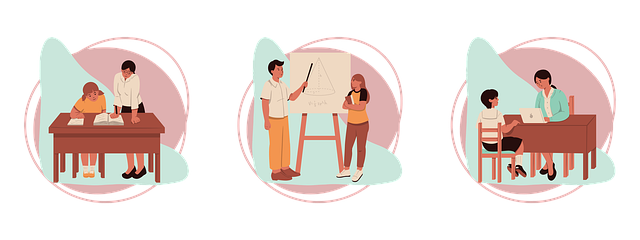Oregon's child welfare system demands specialized legal knowledge from attorneys, who benefit from an extensive state-provided legal resources network. This network includes up-to-date information, case law, and practice guidelines. Building a strong peer support network and leveraging professional resources, such as bar associations, online forums, and training programs focused on Oregon's child welfare laws, is crucial for successful representation of foster care, adoption, and dependency clients. Access to robust attorney tools from Oregon empowers lawyers to stay compliant, advocate effectively, and achieve better outcomes for vulnerable youth.
Oregon child welfare attorneys play a critical role in ensuring the safety and well-being of vulnerable children. To excel in this field, understanding the state’s unique legal framework is essential. This article guides Oregon child welfare attorneys through navigating the complex system, offering valuable insights on building a robust support network and accessing vital legal resources. From comprehensive overviews to practical tools, these resources empower attorneys to provide the best representation for minors in need. Discover the key professional resources that can make a significant difference in Oregon child welfare cases.
- Understanding Oregon's Child Welfare Legal Framework
- Building Your Network: Attorney Support for Oregon Child Welfare Cases
- Essential Tools and Resources for Oregon Child Welfare Attorneys
Understanding Oregon's Child Welfare Legal Framework

Oregon’s child welfare system operates within a stringent legal framework designed to protect and serve vulnerable children and families. Understanding this intricate network is paramount for any Oregon child welfare attorney, who must navigate complex laws and regulations to ensure justice and compliance. The state’s legal resources for these specialized attorneys are comprehensive, offering a robust support network and essential tools tailored to the unique challenges of child welfare cases.
Professional resources in Oregon cater to the specific needs of child welfare attorneys, providing access to up-to-date legal information, case law, and practice guidelines. These resources enable lawyers to stay informed about legislative changes, interpret statutes effectively, and develop robust strategies for representing clients involved in foster care, adoption, and dependency proceedings. The attorney support network also facilitates collaboration and knowledge sharing among practitioners, fostering best practices and ensuring consistent advocacy for Oregon’s vulnerable youth.
Building Your Network: Attorney Support for Oregon Child Welfare Cases

Navigating the complex landscape of Oregon child welfare law requires a robust support system—a crucial aspect often overlooked by busy attorneys. Building a strong network of peers and professional resources is essential for Oregon child welfare attorneys to enhance their practice, ensure client success, and maintain well-being. This involves connecting with fellow practitioners who share expertise in this specialized field, enabling knowledge exchange and collaborative problem-solving.
Professional resources for child welfare attorneys in Oregon include local and state bar associations, where lawyers can find mentorship programs, educational workshops, and networking events. Joining these communities facilitates access to the latest legal developments, best practices, and a supportive atmosphere. Additionally, online forums and social media groups cater to specific needs, offering attorney tools and resources tailored to Oregon’s child welfare cases, ultimately fostering better outcomes for all involved.
Essential Tools and Resources for Oregon Child Welfare Attorneys

Oregon child welfare attorneys require a robust set of tools and resources to effectively navigate complex legal landscapes in this specialized field. Essential resources include access to comprehensive case law databases, up-to-date legal research tools, and subscription services offering practice guides and forms tailored to Oregon’s unique child welfare laws. Additionally, an attorney support network, comprised of peers, experts, and social workers, can provide invaluable insights and assistance.
Professional resources specifically designed for child welfare cases are paramount. These may include state-specific legal databases, online forums for sharing knowledge and best practices, and training programs focused on navigating the intricate procedures and regulations within Oregon’s child welfare system. Such tools empower attorneys to offer their clients the highest level of support and representation in these critical matters.






